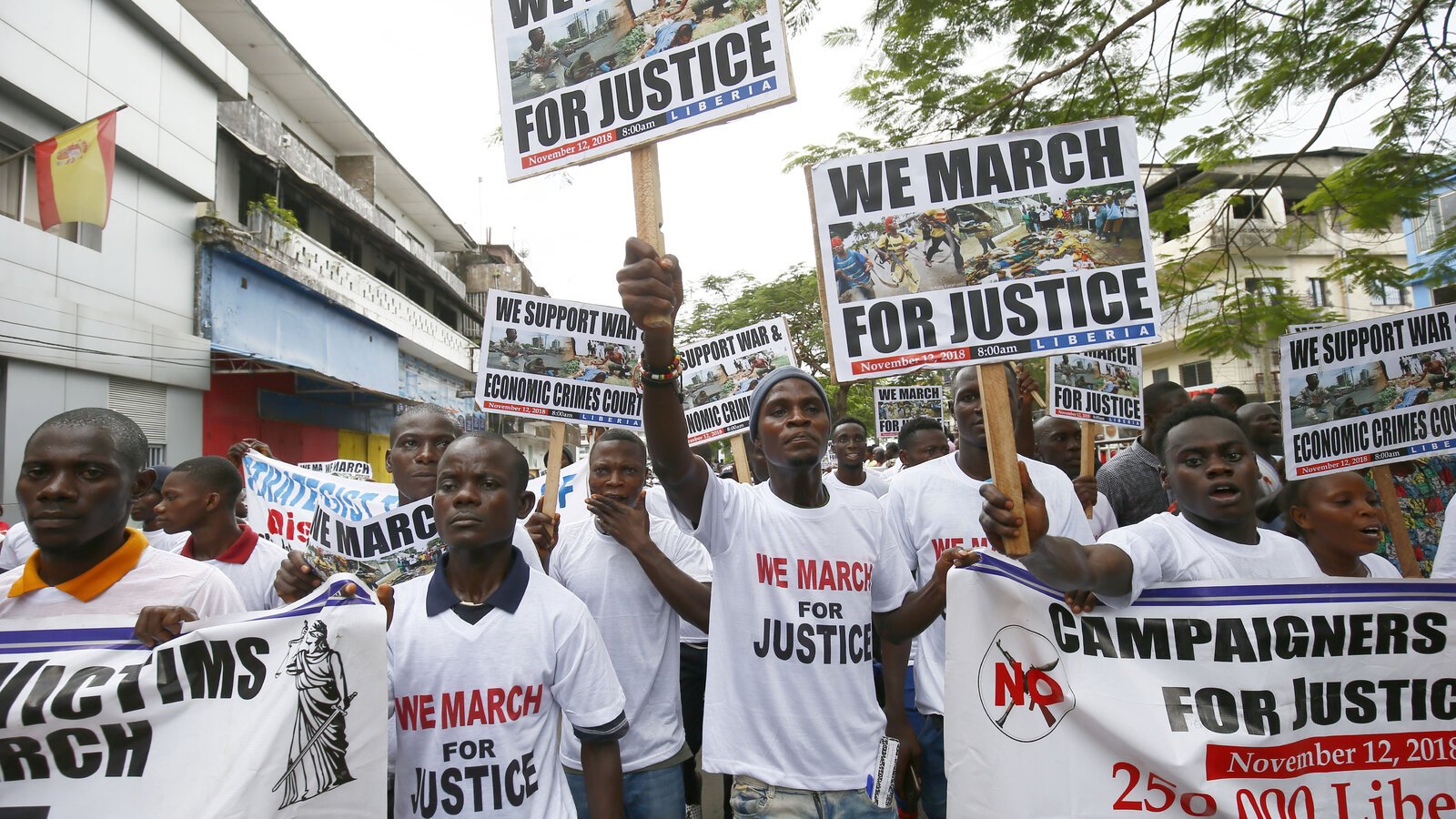Liberians are intensifying calls for justice after the death of former warlord Prince Johnson, urging the Boakai administration to fast-track the War and Economic Crimes Court before more perpetrators evade accountability.
Mounting Pressure on Liberia to Establish War and Economic Crimes Court


Calls for justice in Liberia have grown louder following the death of former warlord and long-time Senator Prince Yormie Johnson, with renewed pressure on President Joseph Boakai’s administration to accelerate the establishment of the long-delayed War and Economic Crimes Court (WECC). Johnson, who passed away at the age of 72 after slipping into a coma in Monrovia’s Hope for Women Hospital, was a controversial figure in Liberian politics. Though revered in his Nimba County stronghold, he was widely accused of committing atrocities during Liberia’s brutal civil wars, including acts of torture, rape, and mass killings—allegations well-documented in the 2009 final report of the Truth and Reconciliation Commission (TRC). His death, without ever facing trial, has reignited public frustration over the culture of impunity that has prevailed in Liberia for decades. Survivors and human rights advocates say the failure to bring Johnson to justice has denied closure to thousands of victims and undermined the country’s path to reconciliation. “He died a free man while thousands of victims still suffer in silence,” said Matilda Konneh, a war survivor from Paynesville. “We need this court now, before more die without consequences.” In recent months, the Boakai administration has taken notable steps toward accountability. In April 2024, Liberia’s 55th Legislature passed Resolution No. 001/2024 to establish both the WECC and an Anti-Corruption Court. This was followed in May by Executive Order No. 131, formally creating the Office of the War and Economic Crimes Court and appointing legal scholar Cllr. Jallah A. Barbu as its executive director. Speaking on Johnson’s death, Cllr. Barbu stressed the urgency of swift action: “His death increases the necessity to make sure we run with the court. We can't afford to keep losing key figures before they answer to the people.” Barbu has outlined a roadmap with the Anti-Corruption Court slated for launch by November 2026 and full WECC operations expected by 2027. However, civil society organisations warn that this timeline may be too slow, given the advanced age of many suspected perpetrators. Legal experts across Liberia have voiced strong support for the establishment of the court. Former Chief Justice Cllr. Gloria Musu Scott and Liberian National Bar Association President Cllr. Bornor Varmah both agree that legal accountability is essential for Liberia’s healing. “I agree today as I did 25 years ago — people must be held accountable for their actions,” said Scott, while Varmah noted that crimes committed during Liberia’s civil wars meet the international definitions of war crimes, obliging Liberia to act in line with global legal standards. However, debate remains over the court’s structure. While Scott insists that the WECC must not undermine the authority of Liberia’s 1986 Constitution and the Supreme Court, Varmah advocates for a hybrid model incorporating both domestic and international legal mechanisms, with the possibility of appeals handled by the International Criminal Court (ICC). The hybrid model has gained support among civil society leaders, including Hassan Bility of the Global Justice Research Project and Adama Dempster of the Coalition for the Establishment of the WECC. They argue that it will ensure credibility, fairness, and technical expertise while preserving Liberian ownership of the process. “The hybrid court allows Liberians to determine their own future while benefiting from international expertise,” Bility said, noting that while Liberia may not be able to prosecute all perpetrators, the court can begin with the most notorious offenders. International partners have reaffirmed their readiness to provide financial and technical support. The United States, European Union, and United Nations have all signalled a willingness to assist—but only if Liberia demonstrates clear political will. “The WECC is a critical step forward in ending the culture of impunity and bringing long-deserved justice to Liberia and its people,” said Raymond Stephens, spokesperson for the U.S. Embassy. EU Ambassador Nona Deprez echoed the sentiment, stressing that the court must be “victim-centred and Liberian-led,” and warning that true peace and development depend on addressing past atrocities. Public support for the court is growing, but so too are concerns over possible resistance from communities loyal to former war actors. Analysts warn of the potential for backlash and call for robust national awareness campaigns to educate the public on the court’s mandate and procedures. “We live in a country where many young people depend on war actors for survival,” said Joshua Pour Gaye, a resident of Bushrod Island. “The government must ensure proper security for victims and witnesses.” As Liberia grapples with its post-war legacy, the momentum for justice appears stronger than ever. But with ageing war-era figures continuing to die without facing trial, the clock is ticking. “The international partners are ready to fund the process,” Bility emphasised. “But Liberia must show readiness—both politically and financially—to end impunity once and for all.”

 বাংলা
বাংলা  Spanish
Spanish  Arabic
Arabic  French
French  Chinese
Chinese 
